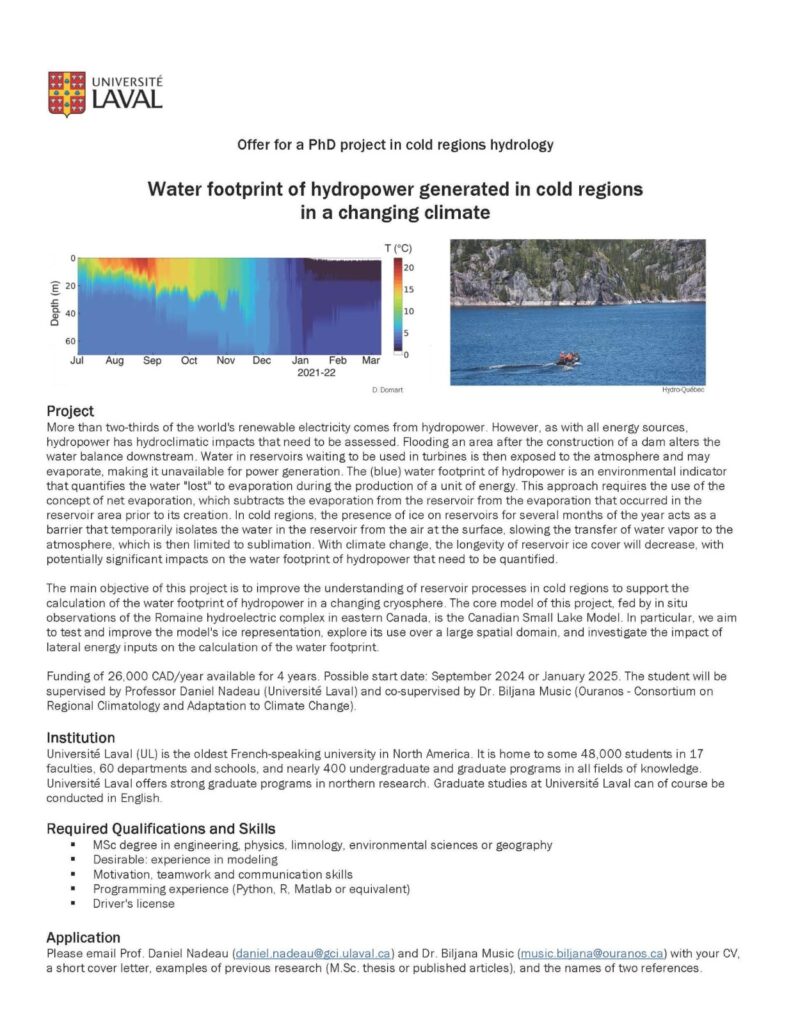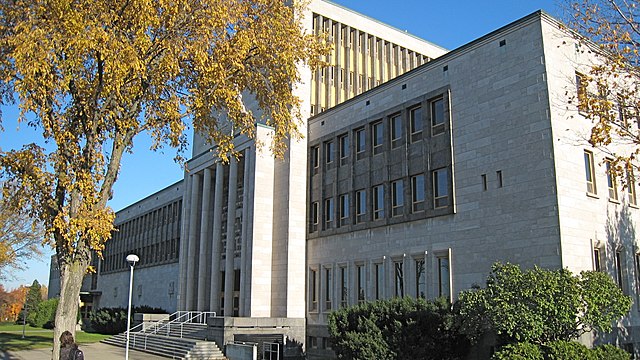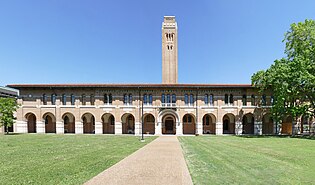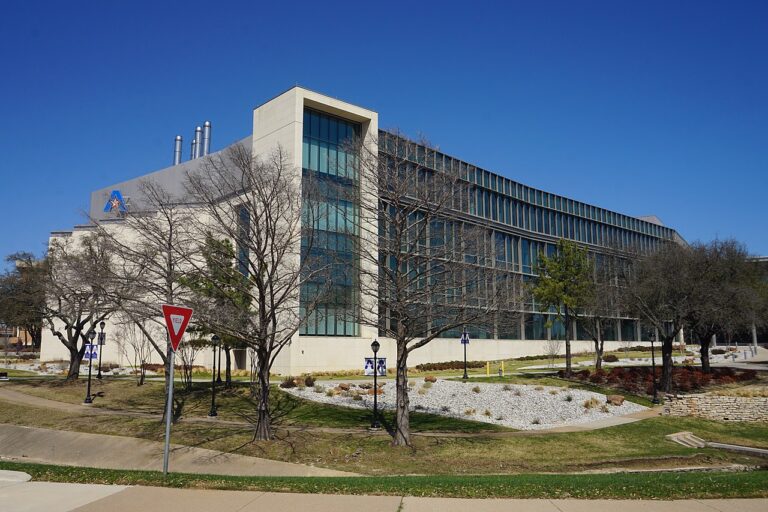UNIVERSITÉ LAVAL
Offer for a PhD Project in Cold Regions Hydrology: Water Footprint of Hydropower Generated in Cold Regions in a Changing Climate
Project Overview:
More than two-thirds of the world’s renewable electricity comes from hydropower. However, hydropower, like all energy sources, has hydroclimatic impacts that must be assessed. Flooding an area after constructing a dam alters the downstream water balance. Water in reservoirs waiting to be used in turbines is exposed to the atmosphere and may evaporate, making it unavailable for power generation. The (blue) water footprint of hydropower is an environmental indicator that quantifies the water “lost” to evaporation during the production of a unit of energy. This approach uses the concept of net evaporation, subtracting the evaporation from the reservoir from the evaporation that occurred in the area before its creation.
In cold regions, the presence of ice on reservoirs for several months acts as a barrier, temporarily isolating the water from the air at the surface and slowing the transfer of water vapor to the atmosphere, limiting it to sublimation. With climate change, the longevity of reservoir ice cover will decrease, potentially significantly impacting the water footprint of hydropower that needs to be quantified.
Objectives:
The main objective of this project is to improve the understanding of reservoir processes in cold regions to support the calculation of the water footprint of hydropower in a changing cryosphere. The core model of this project, fed by in situ observations of the Romaine hydroelectric complex in eastern Canada, is the Canadian Small Lake Model. The project aims to:
- Test and improve the model’s ice representation.
- Explore the model’s use over a large spatial domain.
- Investigate the impact of lateral energy inputs on the calculation of the water footprint.
Funding:
- $26,000 CAD/year for 4 years.
- Possible start date: September 2024 or January 2025.
Supervision:
- Primary Supervisor: Professor Daniel Nadeau (Université Laval)
- Co-Supervisor: Dr. Biljana Music (Ouranos – Consortium on Regional Climatology and Adaptation to Climate Change)
Institution:
Université Laval (UL) is the oldest French-speaking university in North America, home to approximately 48,000 students in 17 faculties, 60 departments and schools, and nearly 400 undergraduate and graduate programs in all fields of knowledge. Université Laval offers strong graduate programs in northern research. Graduate studies at Université Laval can be conducted in English.
Required Qualifications and Skills:
- MSc degree in engineering, physics, limnology, environmental sciences, or geography.
- Experience in modeling (desirable).
- Motivation, teamwork, and communication skills.
- Programming experience (Python, R, Matlab, or equivalent).
- Driver’s license.
Application:
Please email Prof. Daniel Nadeau (daniel.nadeau@gci.ulaval.ca) and Dr. Biljana Music (music.biljana@ouranos.ca) with your CV, a short cover letter, examples of previous research (M.Sc. thesis or published articles), and the names of two references.
*Following is the full advertisement image provided.
For more scholarship and assistantship update visit : gradassistantship
Feature photo credit: Wikipedia
If you have any inquiries or concerns about the content posted on our website, please do not hesitate to reach out to us via email (info.gradassistantship@gmail.com).




